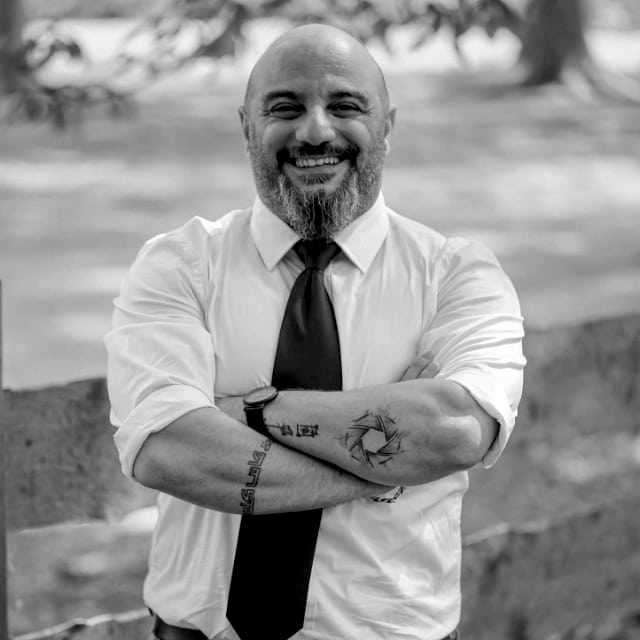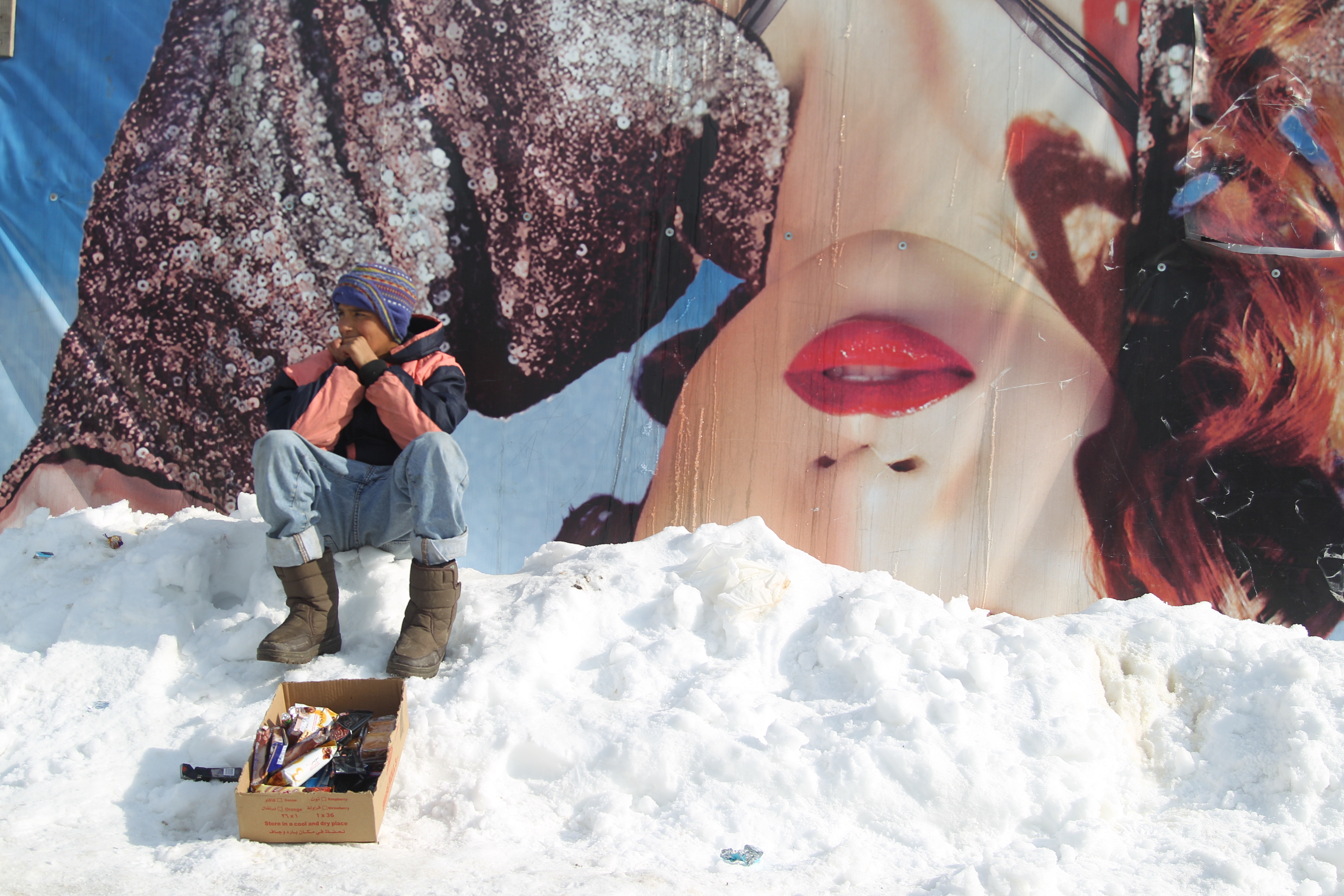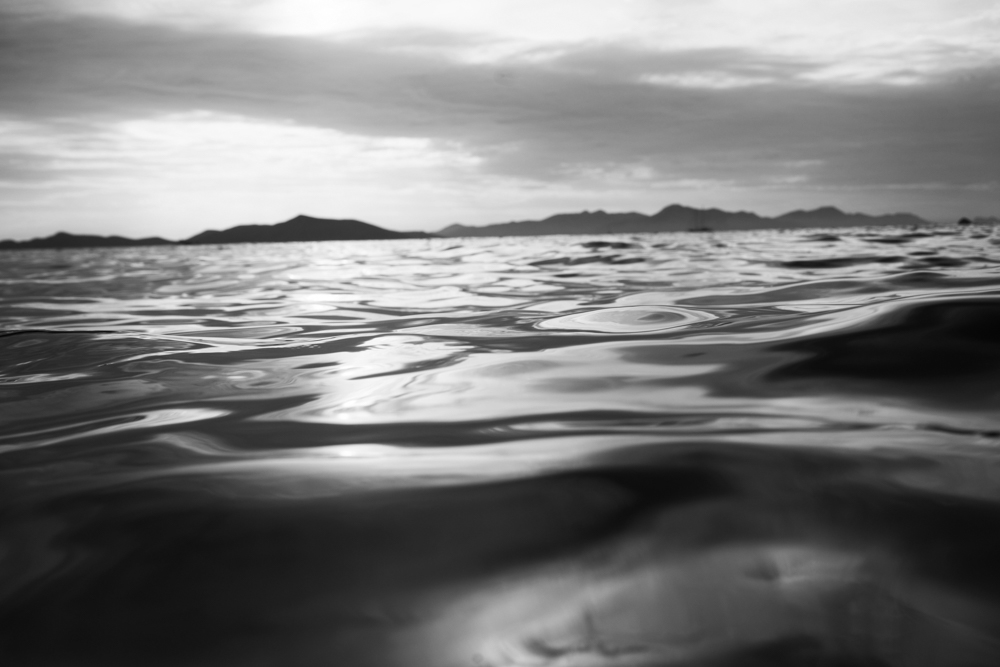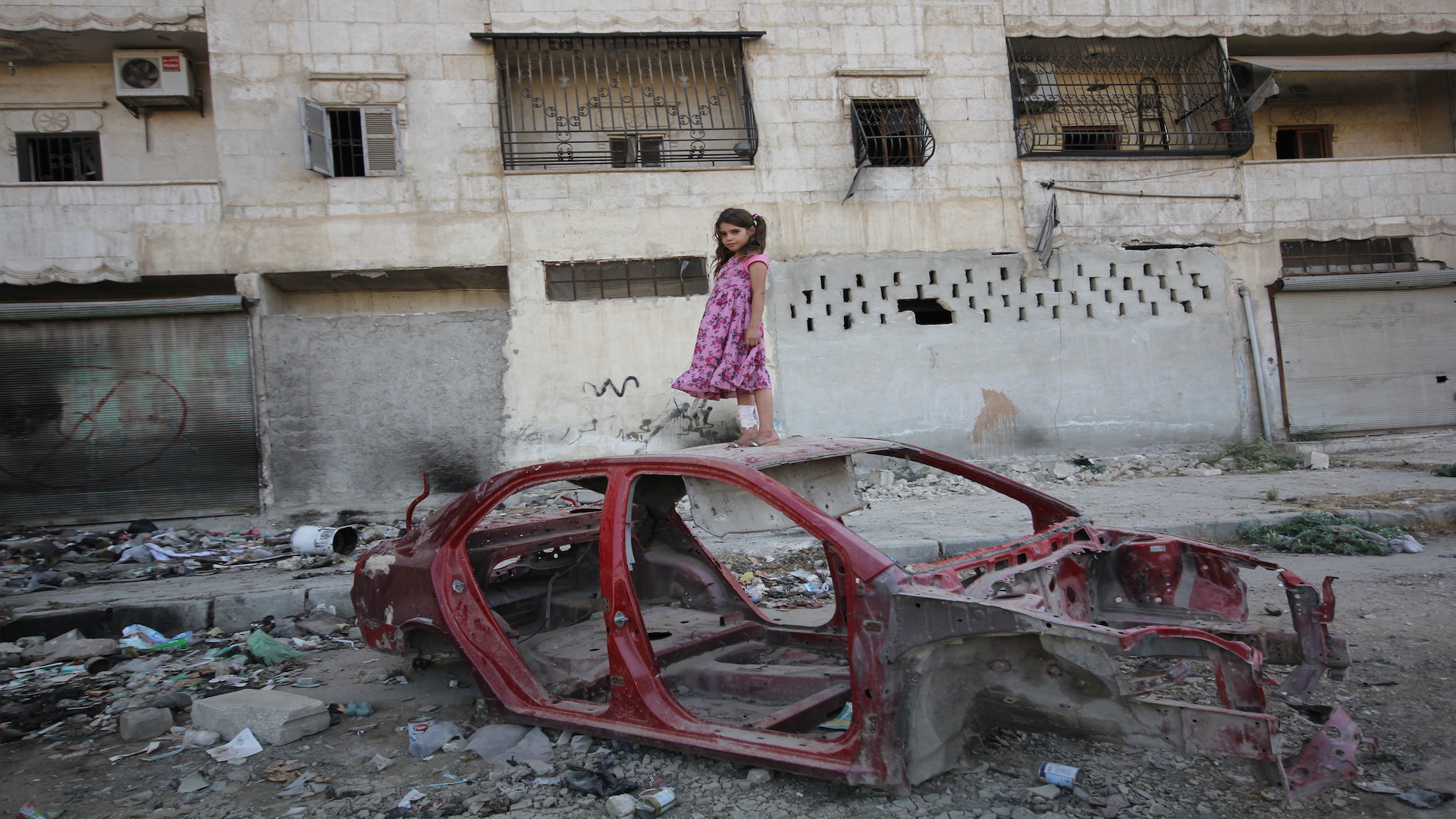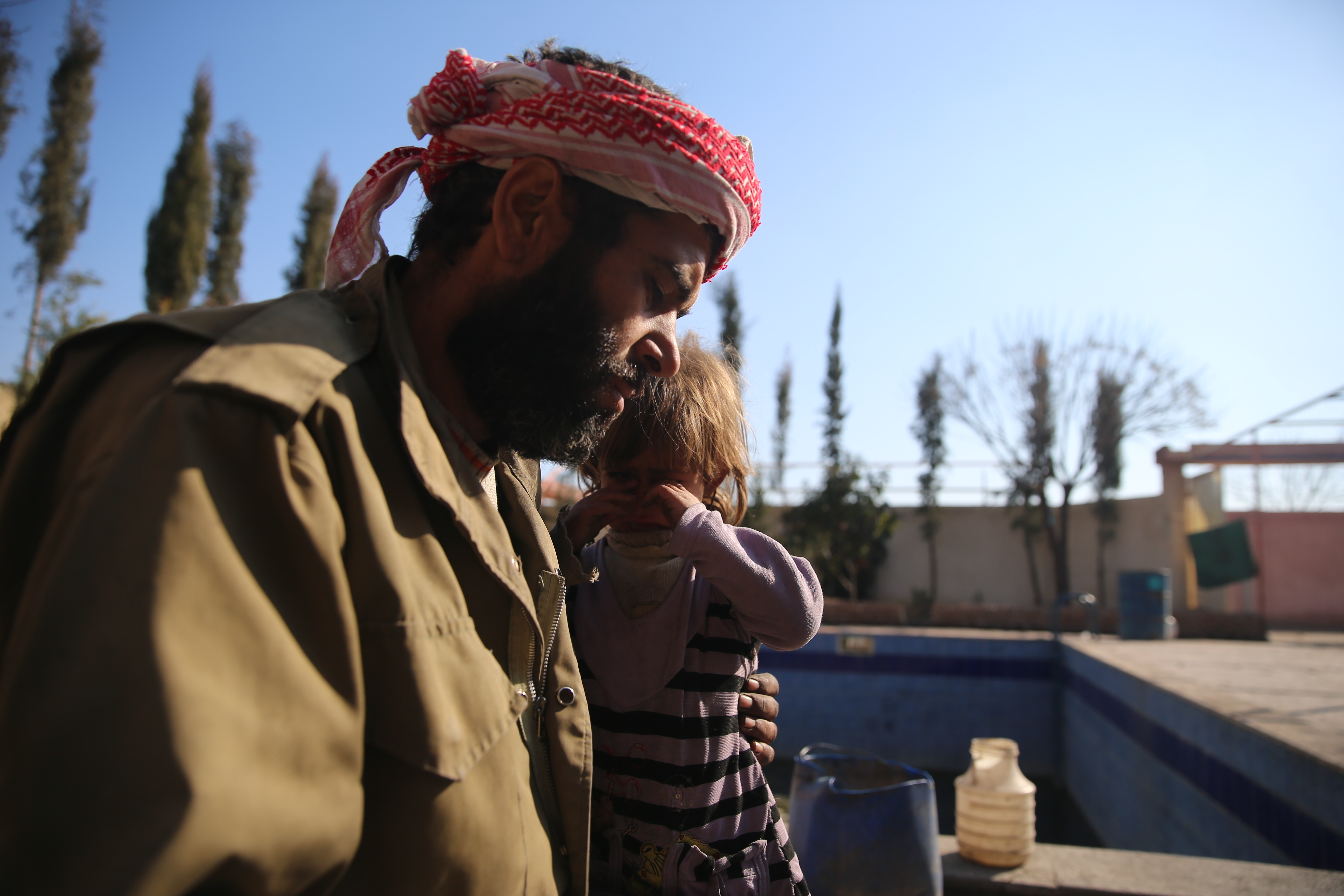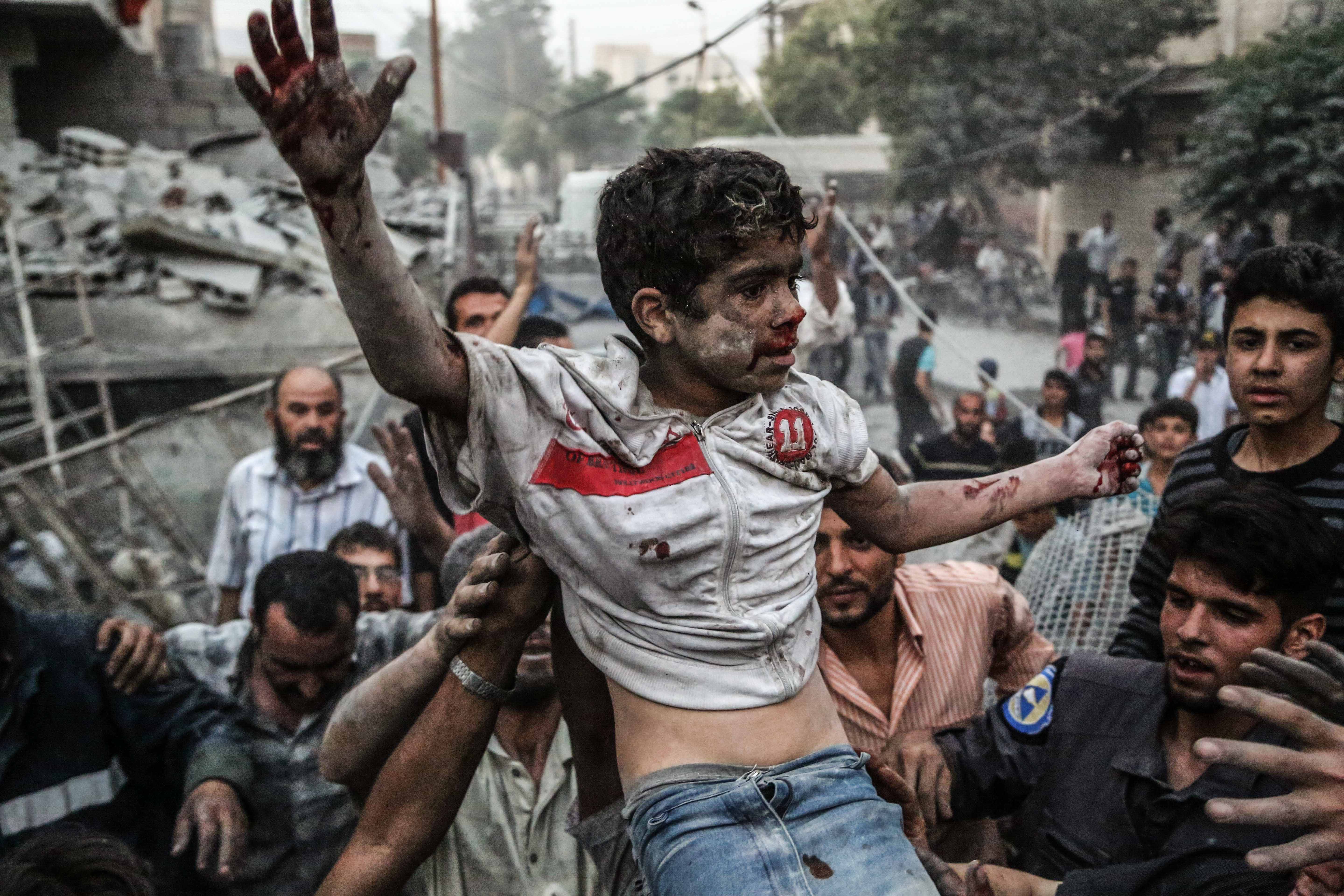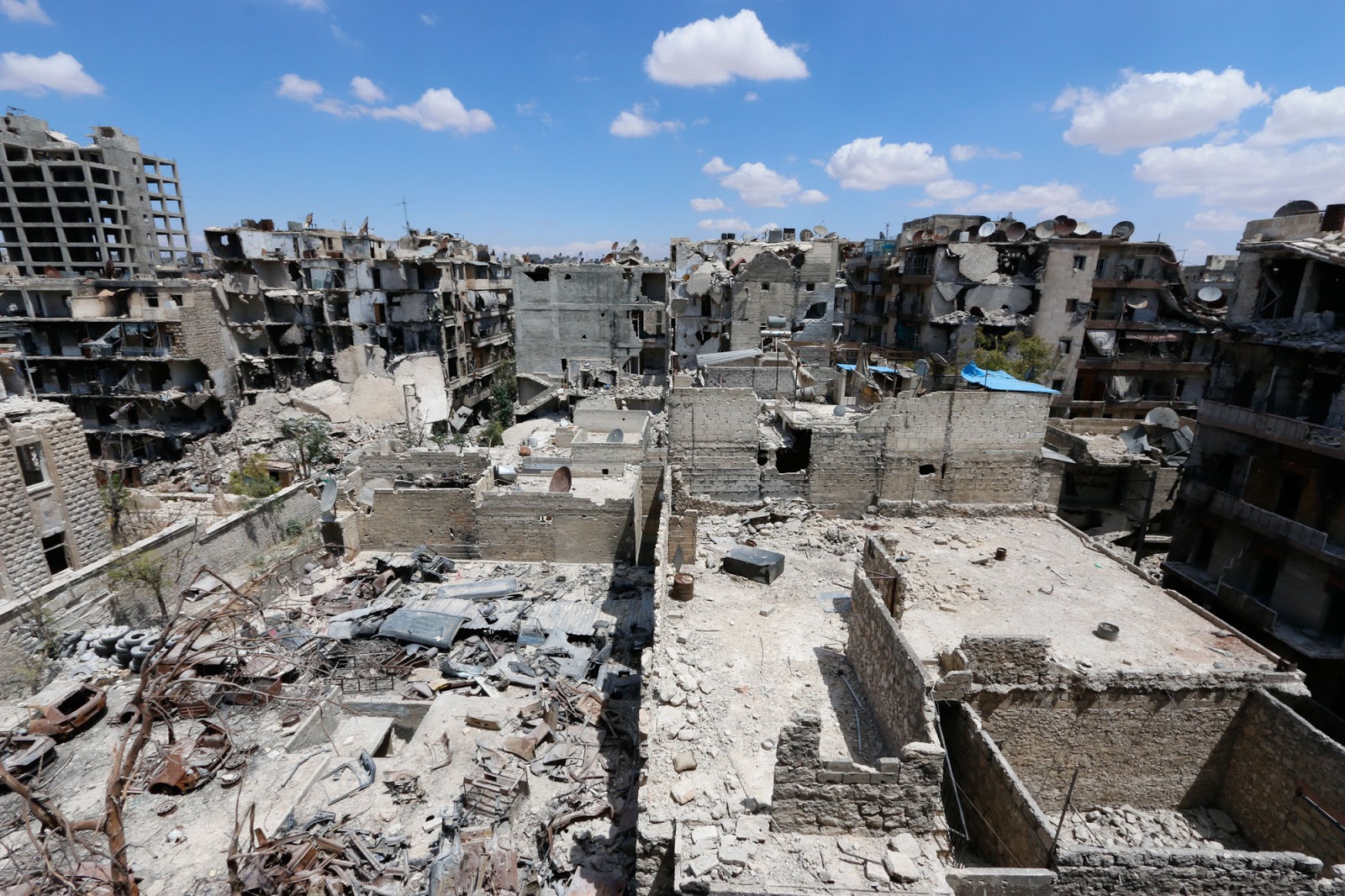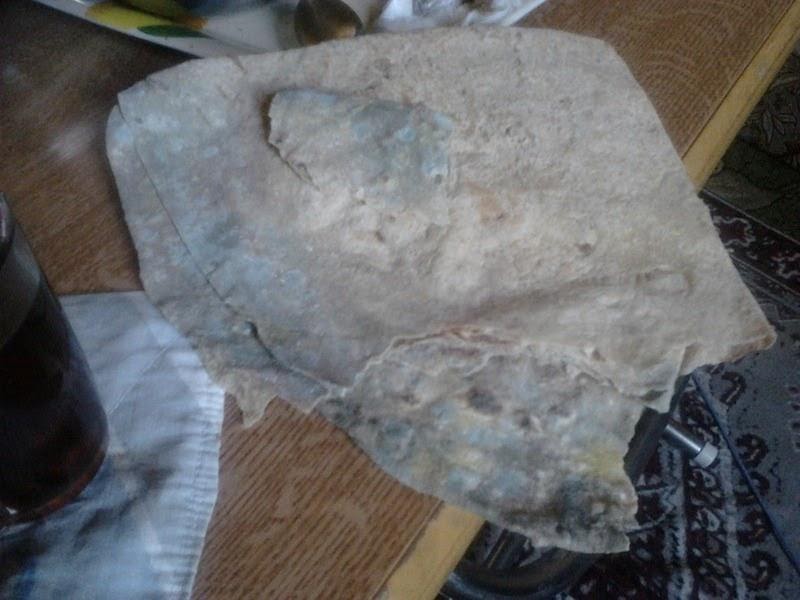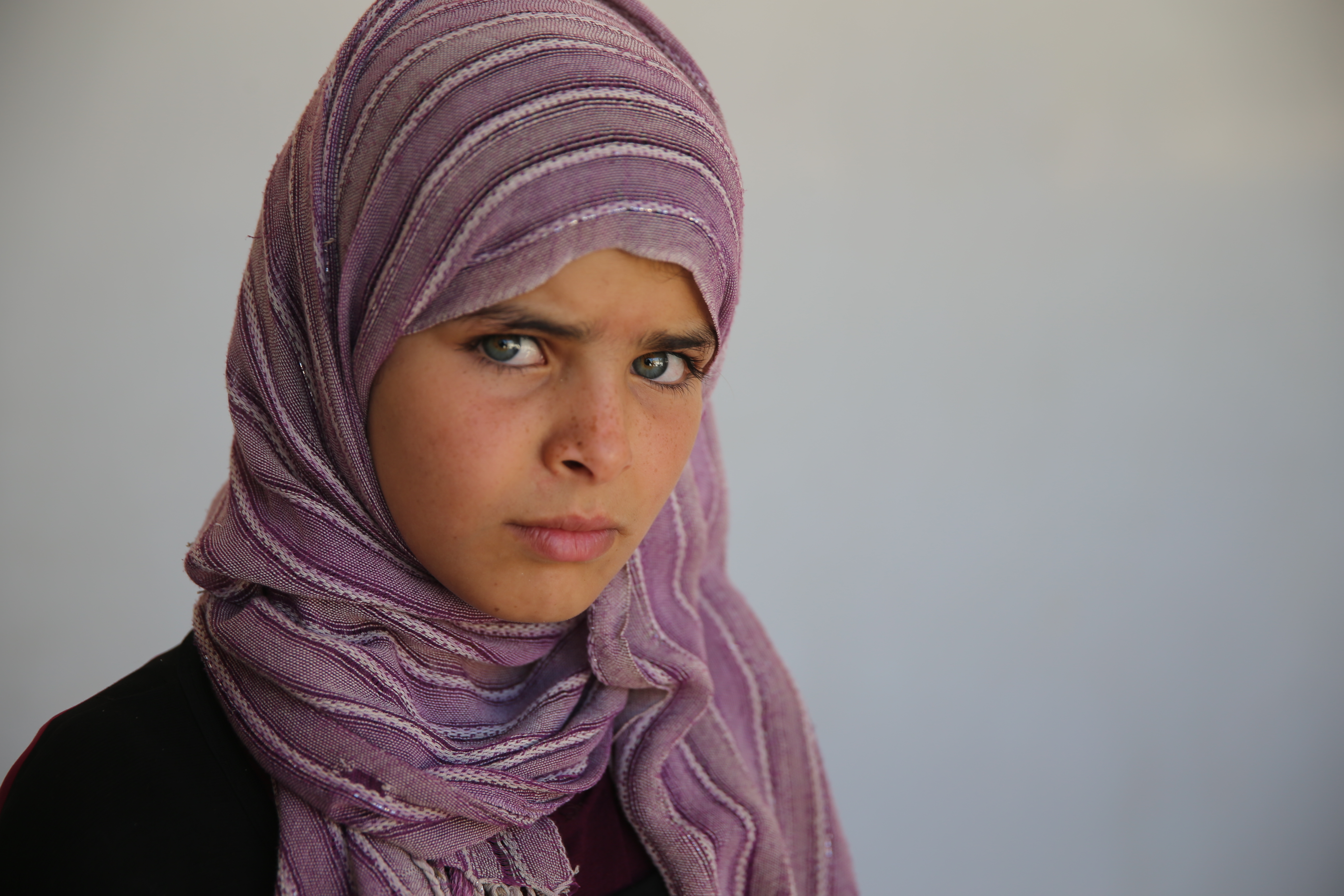This article is part of SyriaInFocus, a series on Syrian photography funded by the Friedrich Naumann Foundation for Freedom, with guest editor Sima Diab.
In the books I read and the movies I watched as a child, I used to encounter characters who wrote diaries and kept them for years. I never imagined the day would come when I would write my own diaries and communicate, in the vernacular, my feelings, pain, sadness and joy. I never thought that writing would become my companion; telling the stories of each photo I have taken.
Still, I began to write a novel, with the subjects of my photos as the characters.
Sarah woke up, with tears still soaking her pillow. She lifted her head from her mother’s lap. They had been through a tough night. It was late, and while they slept, they could hear rising voices. Fires burned down the houses of the village, and cries for help filled the air. In the distance, the shadows of ghosts appeared, as though they were escaping death itself.
A tent or a homeland?
In the photo above, you can see the sunset and a calm, rural environment. You might like its colors—they are almost perfect. The reality is more than meets the eye. When I took the photo, I wanted to reflect the reality of what lay beyond the scenery. I wanted to depict the pain and the cold. The truth is that this is just a tent made from wooden pieces, corrugated metal and cloth. It was placed in a way that the naked eye would see it as a picture: perfect. But it is the tent of a family that has escaped Assad’s hell. They built themselves a homeland and named it a tent.
They raided the calm town at midnight. Sarah escaped with her father, mother and five siblings under the night sky. The sounds of empty weapons rattled everywhere. Little did she know at that moment that she would lose the most important person in her life.
A volunteering spree, snow and a world that likes to see reality upside down
After arriving in Lebanon, I tried to dedicate some time to volunteering. I met with Syrian Eyes, a nonprofit relief organization. I learned a lot from them, and I became part of their small family. Each time we visited one of the camps they serve, we felt that we were visiting our parents to lend them a hand, or as we say to each other, as though we were “on a volunteering spree.” These sprees acquainted us with people who became family in our lonely estrangement.
Winter was the toughest of times for people in camps. The snow reached up to two meters sometimes and stuck around for weeks. Freezing cold, slippery muddy roads and heavy snow could destroy a weakly built tent. Persistence of snow meant that life in the camp was on hold.
I captured the photo of that man with a smile that did not leave his face since I met him. Each time I would pass by his tent, I would find him sitting with a carton in front of him, selling biscuits to help his mother pay the rent on their tent. His life and ours resemble this photo. Everybody might see the larger picture of the woman behind the man before realizing the more obvious. At that moment, I felt that reality was like that picture: the whole world was disconnected from reality and preferred to see matters upside down rather than face them.
Sarah went into one of the classrooms, but it wasn’t as she had imagined. She inspected all the corners despite the total darkness.
The moments of awe upon seeing this new world ended with a series of the latest incidents (sounds of shelling, bullets, screams and fires. They all ran from our house towards the garden. Her father screamed. There was a truck and an unknown man.) She stood in the classroom she had always dreamt of, but that dream was not to come true today.
The dream to return home
Early 2013, I managed to return to East Ghouta. My journey lasted around three weeks. I spent that time walking between the snowy mountains of Lebanon and hiding inside a smuggler’s car crossing the Qalamoun Mountains.
We followed the light of the stars while attempting to escape the range of the regime’s artillery. All these moments were fleeting for me. I was only fixated on the moment when I would return to my mother and father. On part of my journey, I was accompanied by another photojournalist, crazy like myself, whom I had met coincidentally. That coincidence has changed my life. My hobby and passion for capturing photographs took a different path than I had imagined, and I became a war photographer.
From that photojournalist, I learned some rules he considered the most important when taking war photos:
The uprooting
12 December 2020
Children at war: Reliving photos of east Aleppo
25 September 2020
“Millions of photos are not worth risking your life.”
“If you are detained, your fate will be hell, and death will be easier than thinking you might escape from those whose crimes you are documenting.”
“Always try to keep an eye on the details around you. If you are left alone, you must trust your instinct and memory to survive before being detained or killed.”
Still, and despite knowing that I was risking my life each and every moment and that I might die with a bullet, bomb, rocket or from shrapnel, I felt an indescribable internal and personal victory. I felt that through my photos, whether of the government-imposed siege, shelling or their impact on people, I was documenting these events for the whole world to see.
With that photo, I was conveying the truth that, just like all humans, we deserve life, dignity and freedom. I wanted to raise the voices of people above battle analytics and military or political discussions. Through my photos, I wanted to tell everyone that each moment was a risk. Still, we smiled and mocked death.
I wanted to depict the lives of the young men who preferred to defect from the regime army, refused the orders of criminals and chose to defend their parents with the rifle. They crossed the battlefronts on foot. Sometimes, they ate only dry olives or barley bread. They were barely 20 years old and were supposed to be at university or working. Due to the war and Assad’s siege, they chose a more perilous path. Whenever the guards’ shifts or battles ended, they would return to their normal lives like any other young men their age. They played cards, listened to music, talked about their school adventures and about their loves. They prayed and sang for love and their lovers, in the hope of seeing them one more time.
They began fixing their new house, which was in fact a classroom and three blankets. They took nothing with them when they left their village. Sarah sat there thinking. At that moment, she did not think about her house, the garden, the cows or the chicken or even her lamb Khazna. She only thought about her father. She hadn’t stopped crying since the night before. She asked her mother, “Mother, where is dad?” Silence filled the room, and her mother sighed, “He went out to get some things for the house, and he will be back, darling.”
How do you explain the feeling of hunger to a child?
Upon seeing this photo, you might first notice a man with a crying baby. In the background, there are trees and a pool. Is the child crying because they don’t like photos?
During that period, in early 2014, the siege was at its worst. It was a cold winter marked by hunger. There were no crops, and the child was crying simply out of hunger.
You might consider hunger a normal feeling. Any child might feel hungry, but not when they haven’t eaten anything for days except for a plate of pickles. The father felt crippling helplessness. His child, like any other child in Ghouta, did not understand the siege or the war. He only knew he was hungry. How can you explain to a child the meaning of siege; that a regime and its army are encroaching on you and waiting for you to die from hunger to declare their victory?
War note
22 December 2020
In memory of a loaf of bread
Around that time, I made the toughest decision of my life, which was to separate from my parents. It was September, at the onset of a cold winter. All the entrances and exits of East Ghouta were shut. There was no fuel, no water, no electricity, no food and no medical supplies. There was nothing.
Our house, like the houses of all East Ghouta inhabitants, was shelled. We were displaced to an apartment made of two small rooms on the third floor of a building in the center of East Ghouta. A week after we moved, and during my coverage of the battles on the frontlines, I was injured for the third time. But because of the fuel shortage, it was difficult, even impossible, for me to undergo surgery for my knee and ankle fractures. My injury was not considered urgent, unlike bleeding or limb amputation. These surgeries were called “cold” or nonurgent, and doctors had to prioritize urgent surgeries only depending on the risk level of the injury.
During that period, I remember we had some provisions at home, including 1.5 kilos of rice, a small bag of sugar, some loaves of barley bread, a plate of thyme and a small bag of candy.
Each day, my mother would set the table, and each of us would invite and insist on the other to eat. They would tell me, “Son, you are injured and you need to eat to strengthen your body.”
Being stubborn, I would insist that they had more right to the available food. Because of the tightened blockade, alternative solutions turned into the only solutions for everyone. Consequently, to treat my most recent injury, I had to tie my leg with a piece of cloth and use a piece of wood to fixate it so that my wounds would mend, without needing analgesics. After several days of such family disputes over food, I decided that the best solution was for my parents to leave East Ghouta. When I proposed the idea of them leaving without me, my mother cried, and my father, with tears in his eyes stifling his words, said unhappily, “How can we leave you like this, son?”
The balance tipped in my favor. I said, “I am wanted, and I cannot go with you. Your record is clean, and you can leave. The food left might be enough for me for a few weeks, but it will only feed all three of us for a few days.” Finally, my parents caved in. I managed to find an escape route, under the shelling and snipers’ bullets, for my parents to leave Ghouta. I stayed alone and estranged in a house I no longer knew.
Because of my wound, I had to crawl inside the small apartment to the kitchen, to the toilet and even the door. I began spiraling in desperation and weakness. I had to do something to break free from that state of mind. I began reading.
I was trying to find solutions to adapt to my loneliness under the siege, but in vain. One of those days, I got an idea. Before the revolution, sports occupied a large part of my day. Why didn’t I think about it? Since I could not move, the only exercise I could do was core training. I started with a set of five exercises on the first day. I was happy, as it had been a while since I last trained. I was not sure I could exercise because of my repeated injuries and the loss of weight and strength. It felt like an accomplishment, and another idea came to me. Why didn’t I reward myself? I had a bag of candy, and I started chewing on a small piece, to save the rest for as long as possible. The piece was barely a few millimeters in size, but I could still taste the sweetness.
I then began rewarding myself throughout the day. Each time I finished reading a book, I would increase the number of exercises. To keep myself motivated, in case I had a tough day or felt depressed, I thought of writing in my diaries. My small achievements in that tiny room included reaching 400 ab exercises in one session. My feeling was priceless, and nobody else could see it or feel it. But that wasn’t important, since I felt it. I had triumphed over hunger, fatigue, loneliness, weakness, siege and over a regime that wanted to break us. In that small room, I said, “I did not and will not break.”
I hate my life
Each time I look at her photo, I remember this moment—a moment of bitterness, anger and injustice. Iman was that child who welcomed any person visiting her family in the classroom they now used as a home in Harasta’s al-Qantarah school, in East Ghouta. Iman, her mother and her little siblings were forcibly displaced from their hometown of Harran al-Awamid in East Ghouta, after the regime forces attacked, burning and killing anything in their way.
I met Iman and her small family when I volunteered for a relief organization established by a group of young men from East Ghouta. Her father had been killed by regime forces.
Unfortunately, Iman did not know her father was dead, and she always waited for his return. Each time she asked her mother when he would be back, she would get a different answer along the lines, “He went to Damascus and the road was blocked,” “He is working in Lebanon,” “He is working during the wheat season.”
She, her siblings and all the children living at the school building played in the playground and felt happy when somebody visited. When I started visiting monthly with the team to distribute allowances to the orphans, they became my friends and called me “Mr. Photographer.”
This photo depicts the first time I met Iman. She welcomed us as though we were guests at her house in Harran al-Awamid. The children gathered around me since I had a camera. One of them called it a “cannon.” Iman and her little sister told me about their small family and pretty town, about their father, land, cows and their lamb Khazna. They went away for a bit, then returned with a worn out personal photo of their father. They took turns holding it. “Look, this is dad. He is working abroad. But he will return to us, and we will all go back to our village.”
At that moment, a man walked up and began screaming, “What are you doing giggling here? Go back to your rooms now! Go back and return with a cup of tea for the mister here, come on!” At that moment, while I was pressing the camera button to take their photo with their father, I captured the sadness of Iman, that innocent girl with a childish smile. The image of Iman and her sisters was carved in my mind; to me, it captured the injustice of the world. One day while I was writing in my diary, it occurred to me to write about Iman, and I started.
I would wake up daily and do my morning ab exercises. I tried to find cell service in one of the corners of the room to update my messages to check on my family and friends or read the news. Then, I would start writing in my diary and remembering my dreams. I would write the number of days since my separation from my parents. I would jot down my feelings and cry, with a lump in my throat, then return to writing. I would write about my friends and my yearning to reunite with them, my longing for the university days, and how much I missed my lover’s face and wanted to hold her and cry about my nostalgia for the protests for freedom. I yearn and I write, then write some more.
Sarah went silent, trying hard to believe her mother’s words. But she couldn't. She was afraid for the first time to be far from her father. She was his spoiled girl whom he took everywhere; to the Friday prayers, the tarawih and the Eid prayers. She learned from him the love of the land. He would always tell her, “The land is our honor, my child.” This expression became her daily mantra. She adored life through her father’s eyes.


